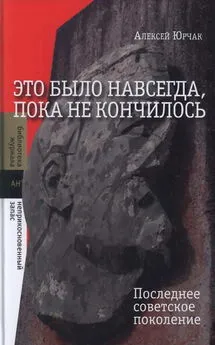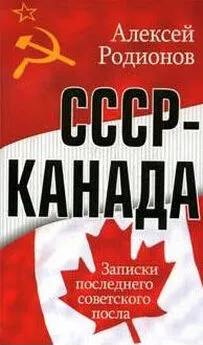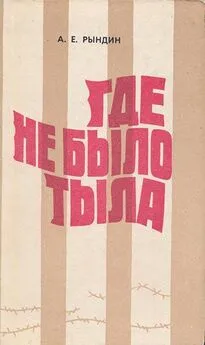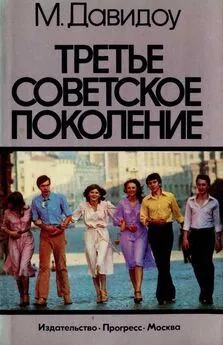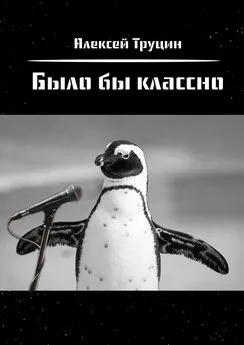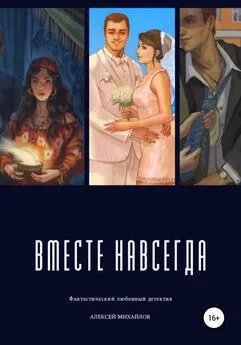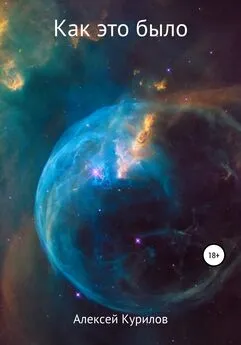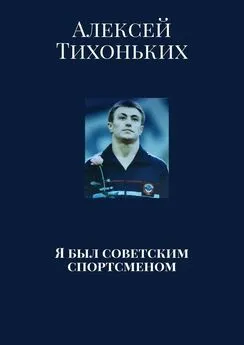Алексей Юрчак - Это было навсегда, пока не кончилось. Последнее советское поколение
- Название:Это было навсегда, пока не кончилось. Последнее советское поколение
- Автор:
- Жанр:
- Издательство:Новое литературное обозрение
- Год:2014
- Город:М.
- ISBN:978-5-444-80190-1
- Рейтинг:
- Избранное:Добавить в избранное
-
Отзывы:
-
Ваша оценка:
Алексей Юрчак - Это было навсегда, пока не кончилось. Последнее советское поколение краткое содержание
Для советских людей обвал социалистической системы стал одновременно абсолютной неожиданностью и чем-то вполне закономерным. Это драматическое событие обнажило необычный парадокс; несмотря на то, что большинство людей воспринимало советскую систему как вечную и неизменную, они в принципе были всегда готовы к ее распаду. В книге профессора Калифорнийского университета в Беркли Алексея Юрчака система «позднего социализма» (середина 1950-х — середина 1980-х годов) анализируется в перспективе этого парадокса. Образ позднего социализма, возникающий в книге, в корне отличается от привычных стереотипов, согласно которым советскую реальность можно свести к описанию, основанному на простых противопоставлениях: официальная / неофициальная культура, тоталитарный язык / свободный язык, политическое подавление / гражданское сопротивление, публичная ложь / скрытая правда.
Это было навсегда, пока не кончилось. Последнее советское поколение - читать онлайн бесплатно ознакомительный отрывок
Интервал:
Закладка:
Nikkila A. 2002. Russian Industrial Noise: Pioneers, Youth League and Party Members // The Wire Magazine. November 1.
Nove A. 1977. The Soviet Economic System. London: Allen and Unwin. NSK — Neue Slowenische Kunst. 1991. Los Angeles: AMOK Books.
Nyiri P., Breidenbacb J. 2002. Living in Truth: Physics as a Way of Life // Anthropology of East Europe Review. Vol. 20. № 2. Autumn. P. 43–54.
Nyomarkey J. 1965. Factionalism in the National Socialist German Workers' Party, 1925–1926 // Political Science Quarterly. Vol. 80. № 1. March. P. 22–47.
Oushakine S. 2001. The Terrifying Mimicry of Samizdat// Public Culture. № 13 (2). P. 191–214.
Oushakine S. 2009. The Patriotism of Despair: Nation, War, and Loss in Russia. Cornell University Press.
Paperno I. 2002. Personal Accounts of the Soviet Experience // Kritika: Explorations in Russian and Eurasian History. № 3 (4). P. 577–610.
Paperno I. 2009. Stories of the Soviet Experience: Memoirs, Diaries, Dreams. Cornell University Press.
Parsons T. 1951. The Social System. London: Routledge.
Pecheux M. 1994. The Mechanism of Ideological (Mis)recognition // Mapping Ideology / S. Žižek (ed.). London: Verso. P. 141–151.
Pelevin V. 2002. Homo Zapiens. Trans. A. Bromfield. New York: Viking.
Pesmen D. 2000. Russia and Soul: An Exploration. Ithaca: Cornell University Press.
Pletsch C. 1981. The Three Worlds, or the Division of Social Scientific Labor, Circa 1950–1975 // Comparative Studies in Society and History. Vol. 23. № 4. P. 565–590.
Pocheptsov G. 1997. Processes of Political Communication in the USSR // Political Discourse in Transition in Europe 1989–1991 / P. Chilton, M. Ilyin, J. Mey (eds.). Amsterdam: John Benjamins Publishing Company. P. 51–68.
Political Humor Under Stalin: An Anthology of Unofficial Jokes and Anecdotes. 2009 / D. Brandenberger (ed.) // Slavica Pub.
Pollock E. 2008. Stalin and the Soviet Science Wars. Princeton University Press. Postmodernism and the Postsocialist Condition: Politicized Art under Late Socialism. 2003 / A. Erjavec (ed.). Berkeley: University of California Press.
Rabinow P. 1989. French Modern: Norms and Forms of the Social Environment. Cambridge, MA: MIT Press.
Ranciire J. 2002. The Aesthetic Revolution and Its Outcomes // New Left Review. №14. P. 133–151.
Radcliffe-Brown A. 1952. Structure and Function in Primitive Society: Essays and Addresses. Cohen and West.
Richmond Y. 2003. Cultural Exchange and the Cold War: Raising of the Iron Curtain. University Park: Pennsylvania State University Press.
Ries N. 1997. Russian Talk. Ithaca, NY: Cornell University Press.
Roach J. 1995. Culture and Performance in the Circum-Atlantic World // Performativity and Performance. A. Parker, E. Kosofsky Sedgwick (eds.). London and New York: Roudedge. P. 45–63.
Rofel L. 1999. Other Modernities: Gendered Yearnings in China after Socialism. Berkeley: University of California Press.
Rosaldo M. 1982. The Things We Do with Words: llongot Speech Acts and Speech Act Theory in Philosophy // Language in Society. № 2. P. 203–237.
Rossianov K. 1993. Stalin as Lysenko's Editor: Reshaping Political Discourse in Soviet Science // Configurations. № 1 (3). P. 439–456.
Roxburgh A. 1987. Pravda: Inside the Soviet News Machine. New York: George Braziller.
Rudy S. 1997. Introduction // Roman Jacobson: My Futurist Years. New York: Marsilio Publishers. P. ix-xvi.
Russian Formalist Criticism: Four Essays. 1965 /L. Lemon, M. Reis (eds.). Lincoln: University of Nebraska Press.
Ryazanova-Clarke L., Wade Т. 1999. The Russian Language Today. London: Roudedge.
Saint-Simon H., de. 1825. Opinions litteraires, philosophiques et industrielles. Paris: Bossange.
Schechner R. 1985. Between Theater and Anthropology. University of Pennsylvania Press.
Schechner R. 1993. The Future of Ritual. Roudedge.
Schechner R. 2003. Performance Theory. Roudedge.
Schein L. 1998. Importing Miao Brethren to Hmong America: A Not So Stateless Transnationalism // Cosmopolitics: Thinking and Feeling Beyond the Nation / Ph. Cheah, B. Robbins (eds.). Minneapolis: University of Minnesota Press. P. 163–191.
Schmitt C. 1985. Political Theology: Four Chapters on the Concept of Sovereignty / Trans. G. Schwab. Cambridge, MA: MIT Press.
Schmitt С. 2004 [1922]. Definition of Sovereignty. // Political Theology: Four Chapters on the Concept of Sovereignty. University of Chicago Press, Ch. 1.
Schoenhals M. 1992. Doing Things with Words in Chinese Politics. Berkeley: Institute of East Asian Studies, University of California.
Scott J. 1990. Domination and the Arts of Resistance: Hidden Transcripts. New Haven, CT: Yale University Press.
Searle J. 1977. Reiterating the differences: A Reply to Derrida // Glyph. № 1. P. 198–208.
Searle J. 1983. The Word Turned Upside Down // New York Review of Books. October 27.
Seriot E 1985. Analyse Du Discours Politique Sovietique. Paris: Institut D'Etudes Slaves.
Seriot P. 1986. How to Do Sentences with Nouns // Russian Linguistics. № 10. P. 33–52.
Seriot P. 1992. Officialese and Straight Talk in Socialist Europe // Ideology and System Change in the USSR and East Europe / M. Urban (ed.). New York: St. Martin's Press. P. 202–214.
Shlapentokh V. 1989. Public and Private Life of the Soviet People: Changing Values in Post-Soviet Russia. New York: Oxford University Press.
Sikimic B. 1999. Violent death in South Slavic Children's Folklore // Etnolog, Ljubljana. № 9.
Siherstein M. 1979. Language Structure and Linguistic Ideology // The Elements: A Parasession on Linguistic Units and Levels / P. Clyne et al. (eds.). Chicago, IL: Chicago Linguistic Society. P. 193–247.
Siherstein M. 1993. Metapragmatic Discourse and Metapragmatic Function // Reflexive Language: Reported Speech and Metapragmatics /J.A. Lucy (ed.). Cambridge: Cambridge University Press. P. 33–58. Sixteen Tons — The Story behind the Legend (http://www.ernieford.com/SixteenTons. htm)
Slezkine Y. 1996. N.Ia. Marr and the National Origins of Soviet Ethnogenetics // Slavic Review. № 55 (4). P. 826–862.
Sloterdijk P. 1993. Critique of Cynical Reason. University of Minnesota Press.
Smith H. 1976.
The Russians. Revised Edition. New York Ballantine Books.
Smith M.G. 1998. Language and Power in the Creation of the USSR, 1917–1953. Berlin: Mouton de Greyter.
Solnick S. 1998. Stealing the State: Control and Collapse in Soviet Institutions. Cambridge, MA: Harvard University Press.
Solzhenitsyn A. 1974. The Gulag Archipelago, 1918–1956; An Experiment in Literary Investigation. New York: Harper and Row.
Sosin G. 1999. Sparks of Liberty: An Insider's Memoir of Radio Liberty. University Park: Pennsylvania State University Press. Soviet Youth Culture. 1989 /J. Riordan (ed.). Houndmills: Macmillan Press.
Scorin-Chaikov N. 2003. The Social Life of the State in Subarctic Siberia. Stanford, CA: Stanford University Press.
Stark D.,
Bruszt L. 1998. Postsocialist Pathways: Transforming Politics and Property in East Central Europe. Cambridge: Cambridge University Press.
Starr F. 1994. Red and Hot: The Fate of Jazz in the Soviet Union 1917–1991. New York: Limelight Editions.
Stites R. 1989. Revolutionary Dreams: Utopian Vision and Experimental Life in the Russian Revolution. Oxford: Oxford University Press.
Stites R. 1993. Russian Popular Culture: Entertainment and Society Since 1990. Cambridge: Cambridge University Press.
Strathern M. 1988. The Gender of the Gift. Berkeley: University of California Press.
Strathern M. 2002. On Space and Depth. In Complexities: Social Studies of Knowledge Practices / J. Law, A. Mol (eds.). Durham, NC: Duke University Press. P. 88–115.
Strauss C. 1997. Partly Fragmented, Partly Integrated: An Anthropological Examination of «Postmodern Fragmented subjects» // Cultural Andiropology. W 12. P. 62–404.
Strugatsky A.,
Strugatsky B. 1979. Roadside Picnic / Trans. A.W. Bouis. Harmondsworm: Penguin.
Stump J. 1998. Naming and Unnaming: On Raymond Oueneau. Lincoln: University of Nebraska Press.
Tang Yi-Jie. 1991. Confucianism, Buddhism, Daoism, Christianity, and Chinese Culture. University of Peking and Washington, DC: Council for Research in Values and Philosophy.
Tassi A. 1993. Person as the Mask of Being// Philosophy Today. № 37. P. 201–210.
Taussig M. 1992. The Nervous System. New York: Routledge.
Taussig M. 1993. Mimesis and Alterity: A Particular History of the Senses. New York: Routledge.
Thorn F. 1989. Newspeak: The Language of Soviet Communism. London: Claridge Press.
Thurston R. 1991. Socialist Dimensions of Stalinist Rule: Humor and Terror in the USSR, 1935–1941 //Journal or Social History. № 24 (3). P. 541–562.
Todorov Tz. 1998. Mikhail Bakhtin: The Dialogic Principle / Trans. W. Godzich. Minneapolis: University of Minnesota Press.
Troitsky A. 1988. Back in the USSR: The True Story of Rock in Russia. Boston: Faber and Faber.
Tupitsyn V. 1991. The Communal Kitchen: A Conversation with Ilya Kabakov // Art Magazine. October. P. 48–55.
Turovskaya M. 1993a. Lectures on the Totalitarian Film of Stalin and Hitler. Unpublished manuscript. Duke University. Department of Slavic Languages and Literatures.
Turovskaya M. 1993b. The Tastes of Soviet Moviegoers during the 1930's // Late Soviet Culture: From Perestroika to Novostroika / Th. Lahusen, G. Kuperman (eds.). Durham, NC: Duke University Press.
Urban G. 1996. Entextualization, Replication, and Power // Natural Histories of Discourse / M. Silverstein, G. Urban (eds.). Chicago: University of Chicago Press. P. 21–44.
Urban M. 1986. From Chernenko to Gorbachev: A Repoliticization of Official Soviet Discourse? // Soviet Union/Union Sovietique. № 13 (2). P. 131–161.
Verdery K. 1996. What Was Socialism, and What Comes Next? Princeton, NJ: Princeton University Press.
Volkov S. 1995. St. Petersburg: A Cultural History. New York: Free Press.
Voloshinov V.N. 1986. Marxism and the Philosophy of Language: Main Problems of the Sociological Method in the Science of Language / Trans. L. Matejka, I.R. Titunik. Cambridge, MA: Harvard University Press.
Wanner С 1998. Burden of Dreams: History and Identity in Post-Soviet Ukraine. University Park: Pennsylvania Stace University Press.
Warner M. 2002a. Publics and Counterpulics // Public Culture. Vol. 14. № 1. Winter. P. 49–90.
Warner M. 2002b. Publics and Counterpublics. New York: Zone Books.
Wedeen L. 1999. Ambiguities of Domination. Chicago: University of Chicago Press.
Wierzhicka A. 1990. Antitotalitarian Language in Poland: Some Mechanisms of Linguistic Self-Defence // Language and Society. № 19. P. 1–59.
Wilde O. 1930. The Decay of Lying // Intentions. New York: A. & С Boni.
Willis P. 1990. Common Culture: Symbolic Work at Play in the Everyday Cultures of the Young. Boulder: Westview Press.
Читать дальшеИнтервал:
Закладка:
